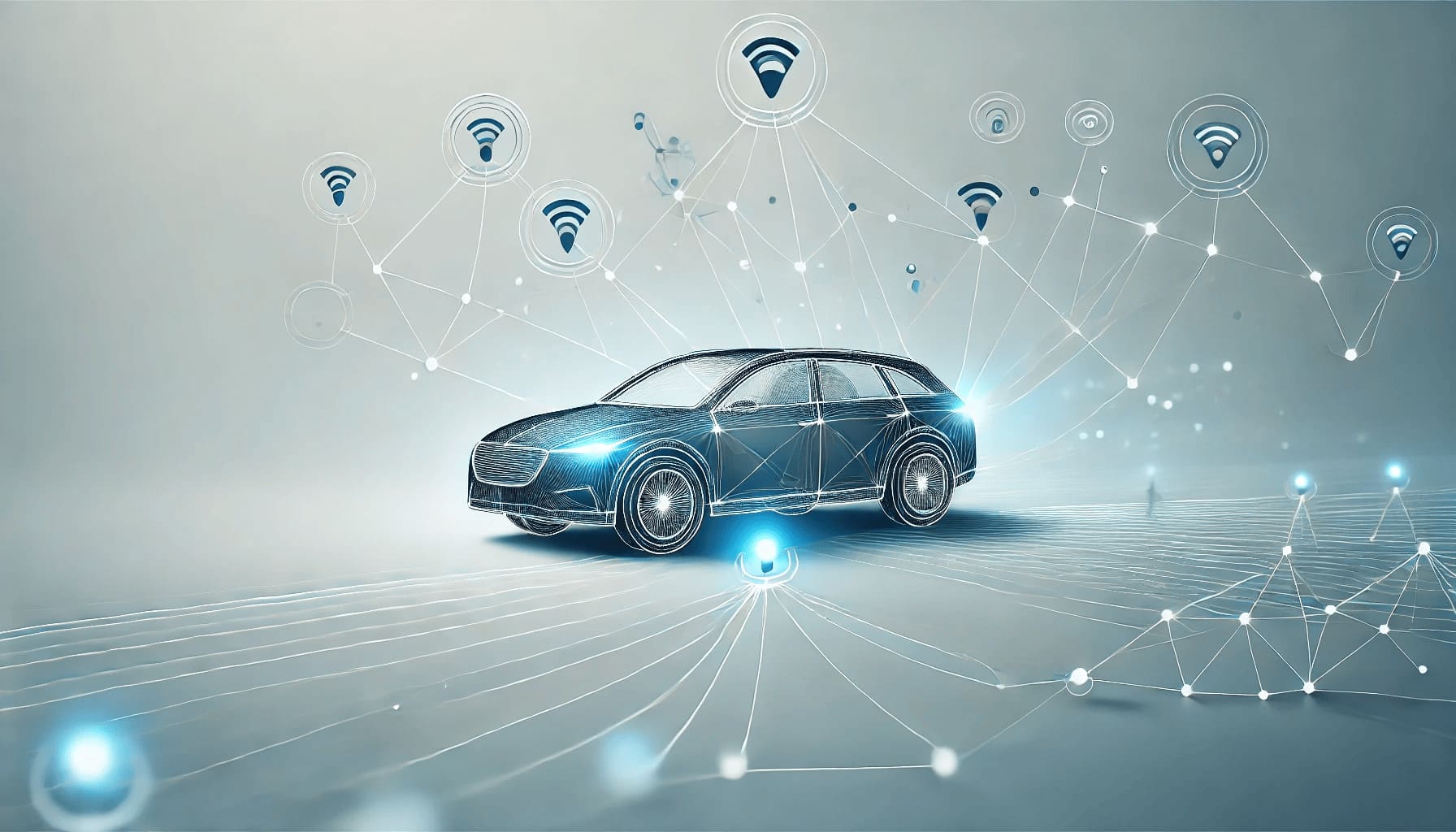Reimagining the Future of Work in Insurance: Evolving Roles and Skills

This article is featured in the 3rd Quarter 2023 Edition of the New York Insurance Association's "Your NY Connection Magazine".
Flying cars might be a concept that is still up in the air but reimagining the future of work is not an exercise in need of an imaginative mind. The world is undergoing rapid technological advancements, societal shifts, and economic transformations. Reimagining work just a few years ahead in 2030 allows individuals, organizations, and policymakers to anticipate these changes and proactively prepare for the future. By understanding the potential challenges and opportunities that lie ahead, we can better adapt and navigate the changing work landscape.
If you lived through the 1990s you would probably remember the days of dial-up internet and being kicked offline when someone picked up the phone. It was a time when internet access was time-based. Today, we cannot imagine a world without being digitally connected 24x7. As we hurl along faster than ever into a more technologically advanced world, today might become modern nostalgia in a few years.
By 2030, millennials will form 75% of the working population and are a generation that does not know a time without the Internet. Their habits and preferences will dictate a reimagined workplace.
Let's delve deeper into how future work in the insurance industry will change
Like every other industry, insurance too has emerged from the pandemic realizing the value of hybrid workspaces. This is not going to go away as employees will no longer be limited by geography. The future of work will involve a transformation of roles, a collaborative partnership between humans and machines, and a focus on customer-centricity and personalization. These changes will require insurance professionals to embrace new technologies, develop new skills, and adapt to the evolving landscape to thrive in the future of work.
By 2030, millennials will make up 75 percent of the working population, according to a report by Forbes and the U.S. Bureau of Labor predictions.
Businesses are realizing the need to attract the brightest minds of the emerging generation. While it might be daunting, organizations will need to deploy tools that facilitate open collaboration and idea sharing - knowledge sharing that seamlessly flows across boundaries. However, this will have to be balanced with increased security considerations.
Here are the signals that we are reading about how the future of work will be reimagined for the insurance industry.
Evolving Roles and Skills
The nature of work in insurance will shift as automation and AI technologies become more prevalent. Routine tasks that can be automated, such as data entry and basic customer service queries, will be handled by machines, freeing up employees to focus on more complex and strategic activities. We are already witnessing this transition.
Insurance professionals will need to adapt and acquire new skills to effectively collaborate with AI systems, interpret data insights, and provide value-added services that cannot be automated. Skills such as data analytics, cybersecurity, AI literacy, and customer experience management will be in high demand.
Rather than being replaced by machines, insurance professionals will increasingly collaborate with AI systems and automation tools. This partnership between humans and machines, often referred to as "augmented intelligence," will leverage the strengths of both. Insurance workers will use AI systems to process and analyze vast amounts of data, gain insights, and make informed decisions. They will complement this with their human judgment, empathy, and problem-solving skills to provide personalized and strategic advice to clients.
Also Read: How Insurers Can Secure the Future by Building a Resilient and Intelligent Cloud Infrastructure
A probable augmented intelligence scenario
It's 2035, and Sarah, an insurance underwriter, starts her day by logging into the company's intelligent underwriting platform. Sarah receives a new insurance application. The intelligent platform automatically analyzes the applicant's data, including their risk profile, claims history, and external factors. It provides Sarah with a comprehensive risk assessment, highlighting any potential red flags or unique considerations.
It generates standardized reports, pre-fills data fields, and conducts background checks using AI algorithms. This allows Sarah to focus on more complex cases and provide personalized advice to customers.
Sarah needs to consult with a team of experts on a complex risk assessment. Using immersive virtual workspaces, Sarah and her colleagues join a virtual meeting where they can interact, share screens, and collaborate as if they were in the same room. They discuss the case, exchange insights, and reach informed decisions efficiently.
During a break, Sarah explores the company's AI-powered learning platform. The platform offers personalized training modules based on Sarah's skill set and career goals. Sarah engages in interactive courses on emerging insurance trends, data analytics, and ethical decision-making, enhancing her professional development. This transformative employee experience is where we are heading.
McKinsey & Company predicts that insurers will increasingly use AI because it is expected to lead to a 40% decrease in operating expenses by 2030.
Customer-Centricity and Hyper-Personalization
The future of work in insurance will be centered around meeting customer expectations and delivering hyper-personalized experiences. We are already seeing this change. While the industry may still be somewhat product-centered today, the shift toward a more customer-centric approach is gaining momentum. Experts anticipate that hyper-personalization will become even more advanced and nuanced in the future. Insurers will leverage advanced data analytics, AI, and machine learning algorithms to gain deeper insights into customer preferences, behaviors, and risks. This will enable them to offer tailored products, pricing, and services that meet the unique needs of individual customers. Insurance professionals will become trusted advisors, providing personalized advice and solutions to customers based on their specific circumstances.
This level of hyper-personalization will involve real-time analysis of data from various sources, including connected devices and external data streams.
An Ericcson survey indicates that 7 out of 10 consumers believe earphones will automatically translate languages as early as 2030. This could mean we could call anyone in the world and sound like ourselves, even in a language we don’t know. Imagine the possibilities that this would open up. With the numerous AI translators that we have already experienced, a leap in natural language technology that removes language barriers seamlessly doesn’t seem to be a fantasy.
Insurance is a consumer industry, and consumer-facing industries will have to be technology leaders. Insurers will need to develop a mobile-led omnichannel strategy. It is quite probable that smartphones might function without touchscreens. Imagine the changes in business workflows when that happens, sooner rather than later.
Enhanced Collaboration and Communication
Advances in digital tools and communication technologies will enable seamless collaboration among insurance professionals, regardless of their physical location. Virtual meetings, project management platforms, and cloud-based document sharing will facilitate real-time collaboration, allowing teams to work together efficiently. This will also enable the integration of remote workers, freelancers, and specialized experts into project teams, expanding the talent pool and promoting knowledge sharing.
The COVID-19 pandemic has accelerated the adoption of remote work in the insurance industry, and this trend is likely to continue in the future. Insurance companies have realized that remote work can be successful without compromising productivity and customer service. As a result, more insurers will embrace flexible work models, allowing employees to work remotely or adopt hybrid work arrangements. This flexibility will attract a diverse talent pool and improve work-life balance for employees.
Also Read: Reimagining and Redefining the Insurance Customer Experience
Digital ecosystems are taking shape that heralds a momentous change
Ecosystems are already taking shape that is bringing together providers from different industries and this is leading to an acceleration in transformation. In fact, 67% of insurance industry leaders state that business models will change in a matter of 5 years or so, and digital ecosystems will be the primary accelerators for this change (Accenture Research).
67% of insurance industry leaders state that business models will change in a matter of 5 years or so and digital ecosystems will be the primary accelerators for this change
Ecosystems foster innovation by bringing together diverse stakeholders with complementary expertise. In the context of insurance, a digital ecosystem refers to a collaborative network where insurers can collaborate with startups, insurtech companies, and technology providers to leverage emerging technologies, such as artificial intelligence, blockchain, and the Internet of Things (IoT), to drive innovation in insurance processes, customer engagement, and risk management. These possibilities are only the tip of the iceberg. They are less to do with selling isolated products or services and more to do with integrated experiences that go beyond the traditional scope of insurance.
58% of insurance companies say that they are actively seeking out ecosystems to integrate within the next 5 years.
By collaborating with various actors, insurers can offer a comprehensive suite of services that address customers' needs across different touchpoints. Several insurers in America have already built ecosystems in their claims management platform that streamlines the claims process for customers. In the event of a covered loss or damage, customers can report the claim through the platform, which automatically initiates the claims handling process. These platforms leverage digital documentation, image recognition, and AI algorithms to expedite the claims assessment and settlement process.
SimpleSolve’s core platform - SimpleINSPIRE is a future-ready API based architecture that integrates and leverages innovation from insurtech providers to enable a context-specific, data-driven approach to almost all business functions of the insurer. We are continuously forging partnerships with insurtech providers and have about 70+ insurtech interfaces that support our insurance partner’s digital transformation.
Reimagining the future of work in insurance is the first of a two-part series. Look out for the second part that explores collaborative work environments, a greater focus on complex decision-making skills, and the rise of a gig economy, among other insights.
Topics: Digital Transformation




.jpg)


